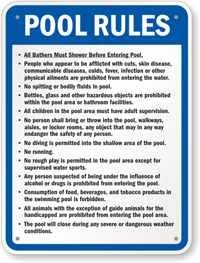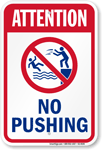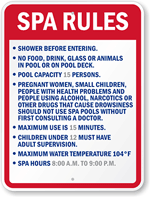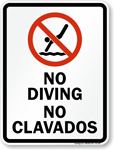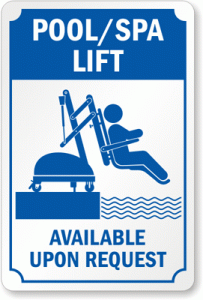The deadline is today for hotel pools to comply with the ADA

Famous hotels like the Standard, in Los Angeles, will need to comply with new ADA regulations soon, if they haven’t already. [Via locationsite on Flickr, used under a Creative Commons license.]
While the Americans with Disabilities Act (ADA) has been in place since 1990, in practice the law is sometimes patchily applied, particularly when it comes to implementing new, more stringent requirements. The Department of Justice (DOJ), which administers and oversees compliance to the ADA, issued the 2010 Standards for Accessible Design to improve and broaden access. Hand in hand with the new standards, the department also issued various time frames and grace periods for existing buildings to upgrade their facilities, in order to remain in compliance.
The new requirement will affect facilities defined by Title III of the Act – these are places of public accommodation and commercial facilities. Hotels and motels, spas, public country clubs, recreation centers and health clubs are all businesses or organizations that ultimately will be required to have more readily accessible swimming pools by retrofitting them with mechanical chair lifts, or by creating entrance ramps into the water.
While most hotels and motels have highly accessible rooms and elevator facilities, widespread use of braille and raised characters, not that many have compliant built-in entrance ramps to their swimming pools that are often found in more accessibility-minded public or municipal pools. For most of the 51,000 hotels and motels across the country, complying with the 2010 Standards will necessitate installing a chair lift, either fixed or portable, to accommodate entry to the water by wheelchair.
Chair lifts work by lowering the user into the water, after they have transferred themselves from the wheelchair. The lifts usually have control handsets and safety belts to allow for people with limited mobility to safely enter and exit the water without assistance. The Department clarified their ruling regarding what kind of chair lift was required; while fixed lifts are preferable, the DOJ will not be pursuing enforcement against those who purchased otherwise compliant but portable lifts as long as they’re kept in position at the pool, and operational at all times that the pool is open. If the pool is over a certain length, the Standards actually require that two lifts be present at all times.
Interestingly, the January 31st compliance deadline is actually a result of an extension granted by the DOJ, based on feedback from the hotel industry, decrying the complexities of complying with the new rules. Like many other upgrades prompted by the 2010 Standards, swimming pools were originally meant to be brought up to compliance by March 15, 2012.
While the hotel industry is understandably reluctant to look like they are dragging their feet to accommodate disabled guests, there has been some confusion and frustration from the industry that may have prompted the ten-month extension. Safely and legally accommodating disabled guests by installing pool lifts in every pool or spa area on a property can be an expensive proposition, since the lifts can run anywhere from $3,000 to $8,000 per unit. Some hotel companies have even considered closing their pool facilities while they make the necessary adjustments, or filling in pools and spas instead of upgrading them. The ADA has been trying to mitigate the confusion and dissatisfaction by issuing clarifications and outlining what exemptions exist to the ruling.
Ultimately, hotel pools and spas are popular amenities for guests, and for facilities like country or beach clubs or health spas, they’re the entire purpose of the establishment. The ADA is designed to create equal access in facilities across the country, not just for absolutely essential components like elevators and restrooms, but also to grant equal access to recreational pleasures and entertainments like swimming pools. While we may see a few closed pools in the coming weeks, we hope that most companies will face the music and make their amenities truly open to all. After all, that’s the best way to be welcoming.
To view our pool lift signs, click here.
– K. Cavouras
Category: Safety



